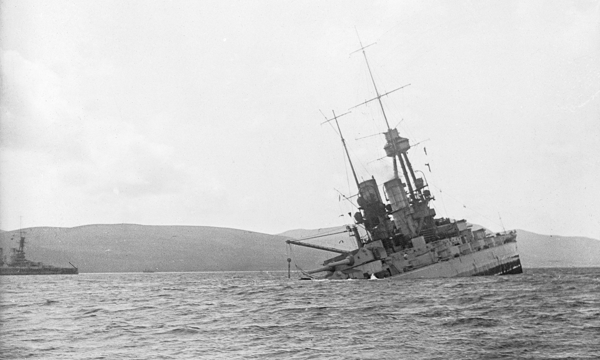Orkney has one of the most outstanding collections of First World War and Second World War remains, both above ground and under water.
The marine heritage in the Scapa Flow area of Orkney encompasses many historically significant wrecks. This includes the archaeological remains from the scuttling of the German High Seas Fleet in June 1919.
A major resource for salvage from 1919 to the 1970s, the wrecks now attract visitors from all over the world and contribute to the economy of Orkney.
How we protect the wrecks
Since 2001, the remains of three battleships and four cruisers of the German High Seas Fleet scuttled in Scapa Flow in 1919 have been protected as scheduled monuments.
Recent survey work by Historic Environment Scotland and our partners on Orkney have shed new light on how much survives under water. The research shows that the condition of the wrecks is deteriorating and these important remains will not last forever.
We recently consulted on designating a historic marine protected area to help protect this heritage for the future. The feedback we received shaped our advice to the Scottish Government.
News about our work at Scapa Flow, including the results of a public survey, can be found on the HES blog.

